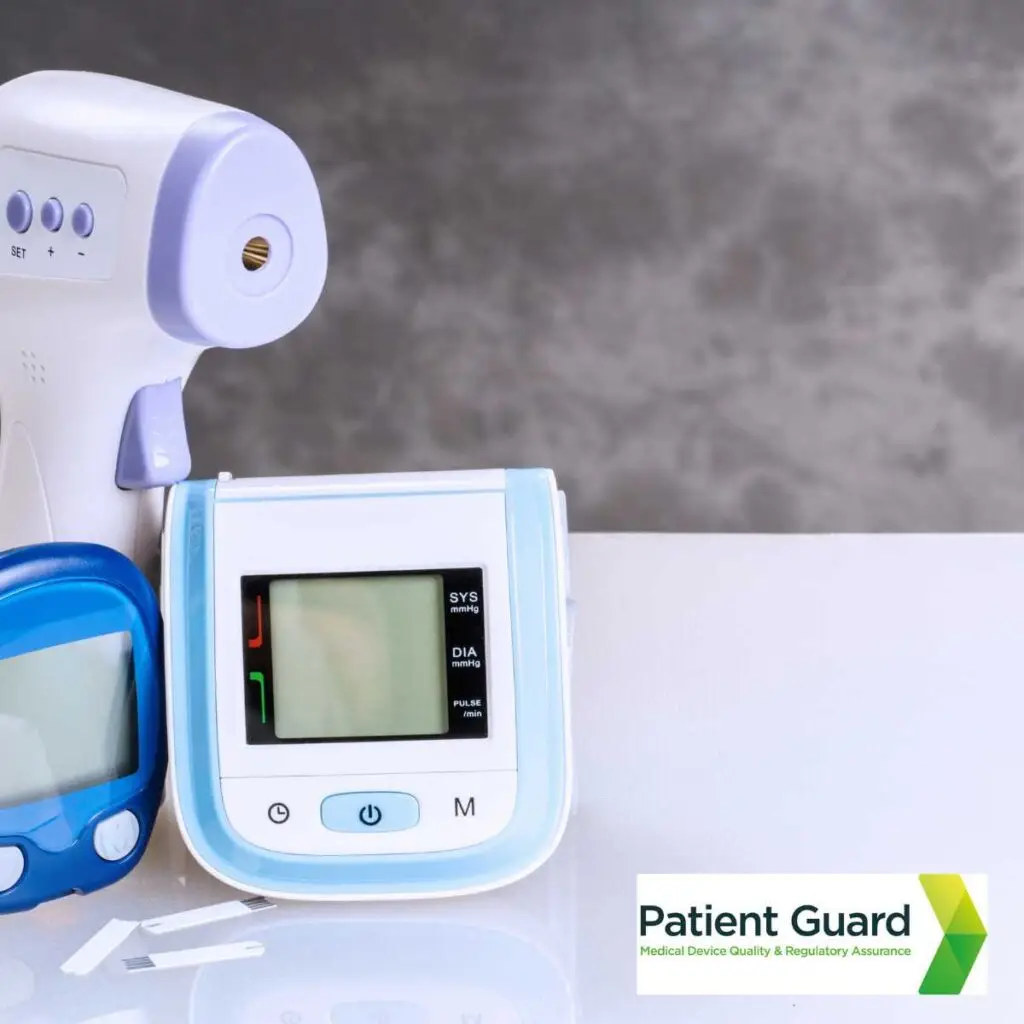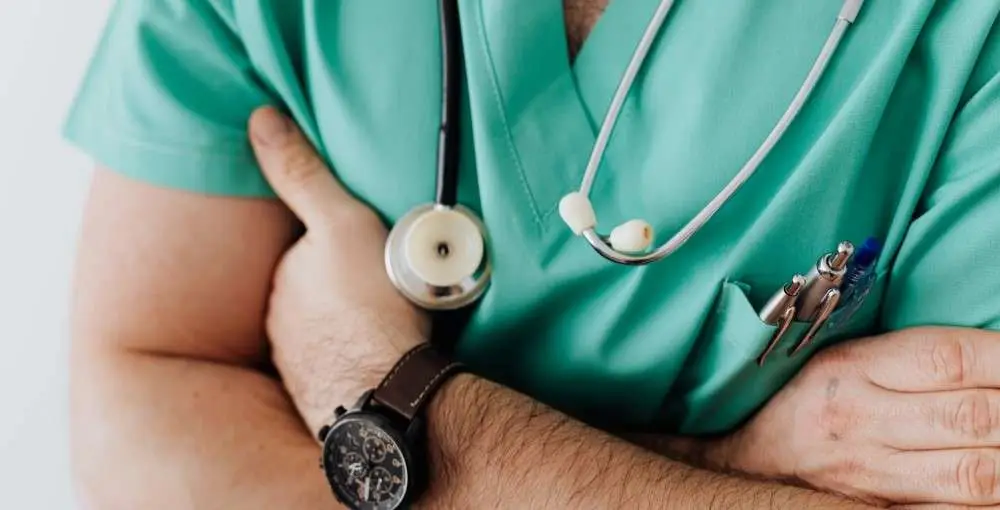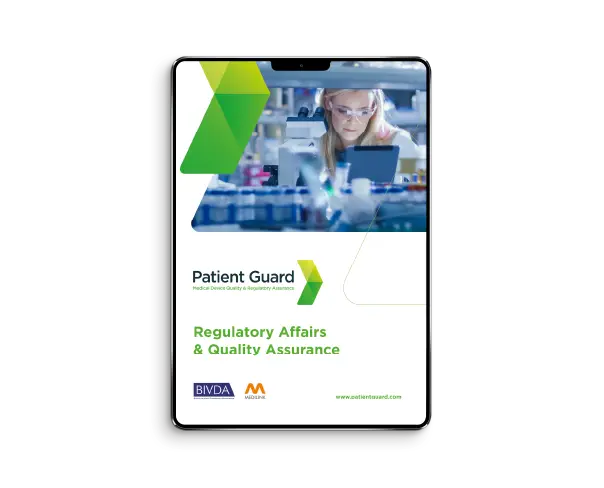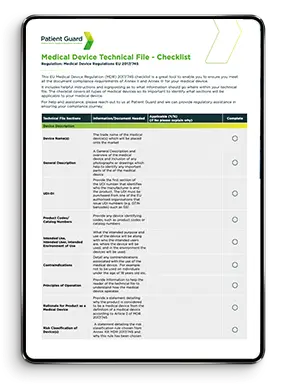What are Medical Devices?
Medical devices are essential pieces of equipment, and there are a lot of them out there on the market. In this blog, we’re looking at the importance of medical device registration.
Medical devices range from any instrument, medical software or medical equipment used by healthcare professionals. The medical industry can be regarded as a higher risk due to public health issues. Therefore, all medical devices must be classified into the correct safety category.
- Class I devices – low risk
- Class IIa – medium risk
- Class IIb – medium risk
- Class III – High risk
Find out more about medical device classifications. The safety and risk profile of a medical device would be assessed through a Clinical Evaluation.
What is Clinical Evaluation?
A clinical evaluation is a document that outlines a particular medical device’s safety and intended uses. Clinical evaluations are an ongoing requirement. They should be completed every two years or more frequently for high-risk devices to ensure clinical safety. Here’s what’s included in a clinical evaluation:
- Evidence the device works
- Biological evaluation (for devices with direct or indirect patient contact)
- Risk management
- Pre-clinical studies
- Literature review
- Post-market surveillance (Identifies safety issues after registration)
All of this information must be presented clearly in a clinical evaluation document.
What is the importance of medical device registration?
The main reason medical device registration is so important is safety. Ensuring that devices meet medical device regulations means that everyone involved can be confident that they are safe for their intended use. All medical devices are extremely important and can have life-saving capabilities. This means that devices must be working to their full potential.

Patient safety and fairness
EUDAMED stands for the European Database on Medical Devices. It is a secure, web-based platform established by the EU to collect, store, and disseminate information related to medical devices available in the European market. The primary objective of EUDAMED is to centralize and harmonize data on medical devices, manufacturers, and notified bodies throughout the EU member states.
Device improvements
Providing regular clinical evidence on how a medical device is performing on the market means that manufacturers can find ways to improve the quality of the devices. This is an integral part of the development process, as all manufacturers should aim to drive innovation and provide better-quality medical devices.
Clear medical information
A medical device that has been correctly registered will likely have all the relevant information ready whenever required. This is very important when it comes to medical device audits.
Audits can be completed unannounced, which means the information will need to be ready, and you will not have time to prepare. For most medical devices, an audit may occur every five years, increasing to every three years for devices labeled as high-risk. Having all of the information available allows for fair market access.
Allows you to gain approval from regulatory agencies
To sell a medical device, you must gain approval from the relevant regulatory bodies. There are different device compliance requirements based on the market location you plan to sell to.
When it comes to manufacturing medical devices, it’s not just about how they work; it’s also essential to ensure they maintain a high-quality standard. ISO 13485 plays a fundamental role in measuring device quality and assessing risks.
How to register a medical device
How you will register a medical device depends on where it is sold. The registration requirements vary for both the UK and EU markets. All devices must receive certification, including custom-made and in vitro devices. Failing to register a medical device is an illegal practice and could land you in trouble.
Medical Device Registration UK
The UK medical device registration process is concerned with the MHRA. Any medical device manufacturers selling to the UK from outside the UK must appoint a Responsible Person to act on their behalf. This allows the device to be registered under the MHRA (Medical and Healthcare products regulatory agency).
Once appointed, the responsible person should have access to all medical device information so they can register it on the UK market. The name of the responsible person selected may also be required on the medical devices’ packaging. Find out more about regulating medical devices in the UK.
Since leaving the European Union, new rules have been introduced regarding regulatory requirements. As a result, devices sold on the UK market require a UKCA marking rather than a CE marking. Currently, devices can be sold on the UK market with either marking. However, after the 31st of July 2023, all devices sold on the UK market will require a UKCA marking. To access a UKCA marking, you may choose from a list of UK Notified Bodies.
EU Medical Device Registration
EU medical device registration is completed through the conformity assessment procedure. This assessment is used to highlight the safety and performance of a device.
For devices manufactured outside of the EU being sold in the EU market, an EU Authorised Representative must be appointed. They must have all relevant information regarding your device and should be named on the product’s packaging. If required, your device will receive the CE marking after completing a conformity assessment.
You must review your medical device registration frequently to ensure that all information is kept up to date. Medical devices are often responsible for saving lives; therefore, they must meet the regulatory framework for their device classification. If you need any support with medical device regulations, please don’t hesitate to contact us. We’re more than happy to help.
FAQs
Medical device registration is the process of obtaining regulatory approval to market and sell a medical device in a specific country or region. It ensures that devices meet safety, quality, and performance standards set by regulatory authorities.
Why it matters: Without registration, manufacturers cannot legally sell their devices, and non-compliance can result in fines, recalls, or market bans.
The registration process typically includes:
- Determine Device Classification: Identify the device’s risk class (e.g., Class I, IIa, IIb, III under MDR).
- Prepare Technical Documentation: Develop a comprehensive technical file or design dossier.
- Implement a Quality Management System (QMS): Ensure compliance with standards like ISO 13485.
- Submit Regulatory Application: Provide documentation to the relevant regulatory body (e.g., FDA, MDR, UKCA).
- Await Review and Approval: Regulatory authorities or Notified Bodies assess compliance and issue approval.
Pro tip: Engage with regulatory experts early to streamline this process.
Device classification determines the level of regulatory oversight:
- Low-Risk Devices (Class I): Often require self-certification with minimal documentation.
- Moderate- to High-Risk Devices (Class IIa, IIb, III): Require Notified Body review, clinical evidence, and stricter documentation.
- In Vitro Diagnostics (IVDs): Face unique classification and performance evaluation requirements under the IVDR.
Key takeaway: Accurate classification is critical to understanding registration timelines and requirements.
Each region has unique regulatory frameworks:
- European Union (EU): Requires compliance with MDR or IVDR and CE marking.
- United States (US): Regulated by the FDA under 510(k), PMA, or De Novo pathways.
- United Kingdom (UK): Requires UKCA marking under UK Medical Device Regulations.
- Canada: Managed by Health Canada with unique classification and submission requirements.
- China: Overseen by the National Medical Products Administration (NMPA).
Pro tip: Understanding the specific requirements of your target market is essential for successful registration.
Common challenges include:
- Regulatory Complexity: Navigating different frameworks and requirements across regions.
- Clinical Evidence Requirements: Gathering sufficient data for high-risk devices.
- Language Barriers: Ensuring documentation and labeling meet local language requirements.
- Post-Market Obligations: Establishing systems for surveillance and vigilance after market entry.
Solution: Partnering with regulatory consultants simplifies the process and reduces the risk of non-compliance.
Patient Guard provides comprehensive support for medical device registration, including:
- Assisting with device classification and regulatory strategy development.
- Preparing technical documentation and clinical evidence reports.
- Supporting CE marking, FDA submissions, and UKCA certification.
- Acting as an EU Authorized Representative or UK Responsible Person for non-EU/UK manufacturers.
- Managing post-market surveillance and vigilance systems.
Why choose Patient Guard: With extensive experience in global regulatory frameworks, we streamline the registration process and help manufacturers achieve timely market access.




